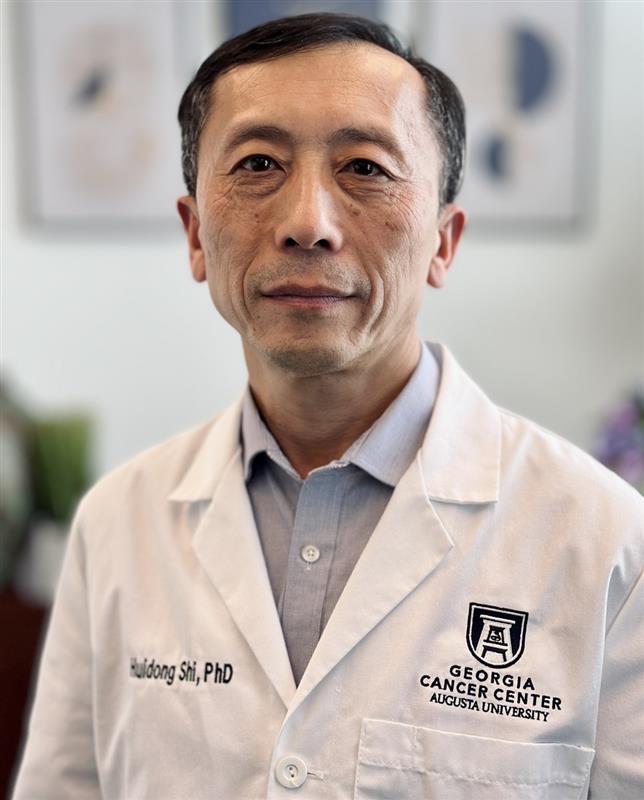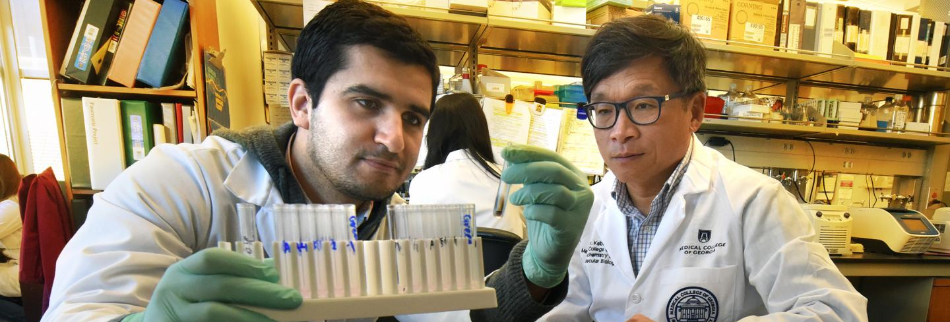
Faculty & Research
Jump to: BMB Core Faculty GCC Primary Appointment in BMB AU/UGA Medical Partnership Emeritus Faculty in BMB
BMB Core Faculty

Our focus is cGMP signaling in the intestine. My lab has identified important roles for cGMP in epithelial homeostasis, and that increasing cGMP using PDE5 inhibitors can prevent colon cancer and treat constipation and ulcerative colitis in mice.
Current projects
- Using intestinal organoids to delineate underlying mechanisms
- Developing novel gut-targeted PDE5 inhibitors for clinical use
- Studying the loss of intestinal cGMP signaling and its role in age-related gut pathology.

DNA double-strand break (DSB) repair and nucleotide metabolism are critical determinants of resistance to many types of cancer treatments, including chemotherapy and ionizing radiation (IR). Therefore, expanding our knowledge of both pathways is of considerable significance for discovering a novel therapy as well as improving the existing options. Our laboratory contributes to this effort by investigating the overlaps between the two pathways and implication to cancer. We mainly focus on delineating functions and regulation of genes like SAMHD1, a known player in nucleotide metabolism and DNA damage response, while determining its coordination with RNR, a well-established nucleotide regulator. Our ultimate goal is exploring the possibility of utilizing knowledge gained to identify biomarkers and therapeutic targets for cancers such as malignant glioma.
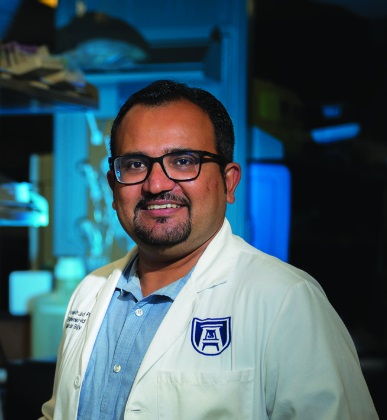
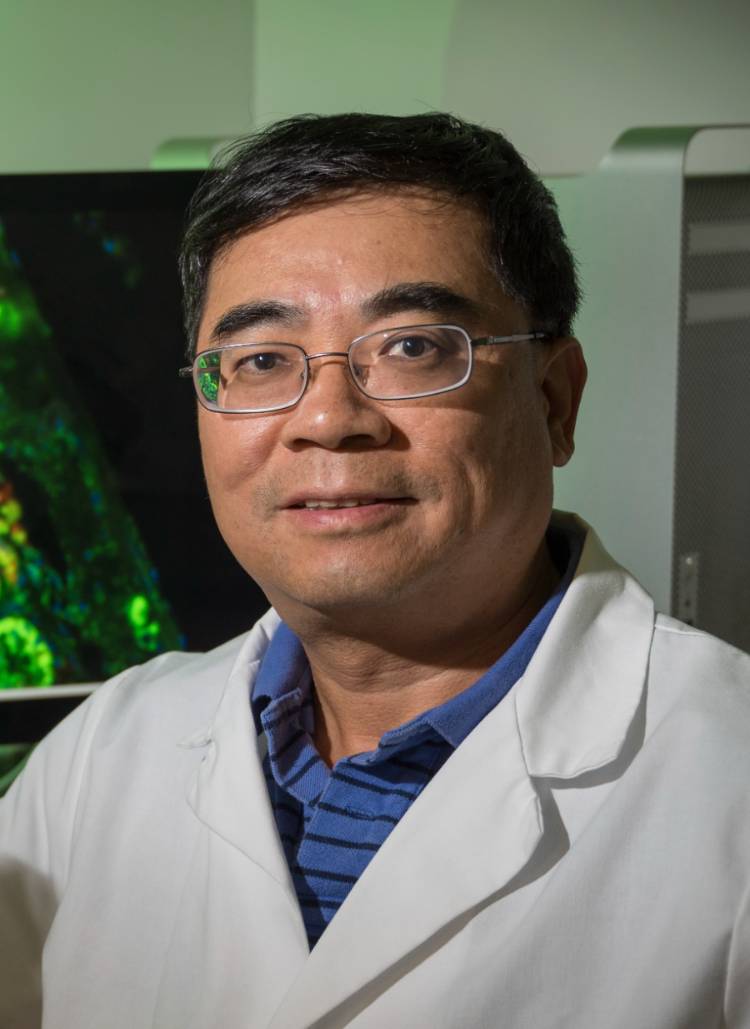
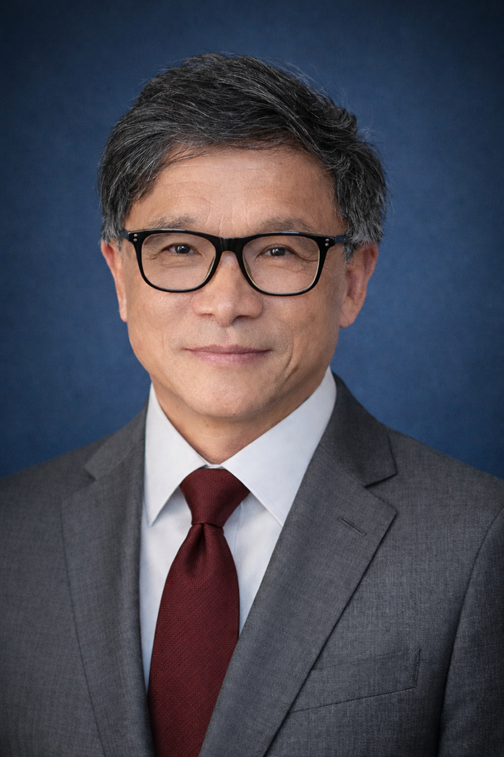
Epigenetic and genetic regulation of tumor suppressor gene expression, mechanism of apoptosis resistance in tumor immune evasion and escape, development of molecular target-based chemotherapy to enhance the efficacy of cancer immunotherapy.


Discovery and analysis of novel biochemical transporters and receptors in retina which may be useful in the development of new therapeutic targets in the treatment and prevention of diabetic retinopathy.

Neurodegenerative retinal diseases
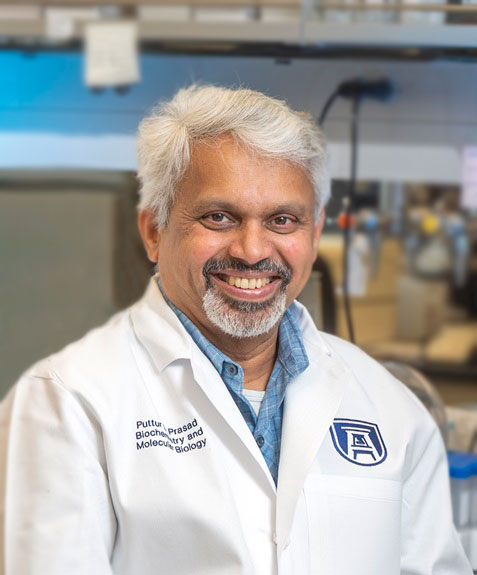
Primary teaching faculty of Biochemistry and Genetics for Phase I Medicine. Component Director of Medical Biochemistry and Module Director for the Cellular and Molecular Basis of Medicine (MEDI-5150) module. Facilitator in Problem-Based Learning for Essentials of Clinical Medicine 1 and 2.
Research interests relate to discovery and characterization of novel nutrient transporters in order to understand their physiological role in nutrient delivery and develop strategies to utilize these transporters as targets for drug delivery and cancer chemoprevention.
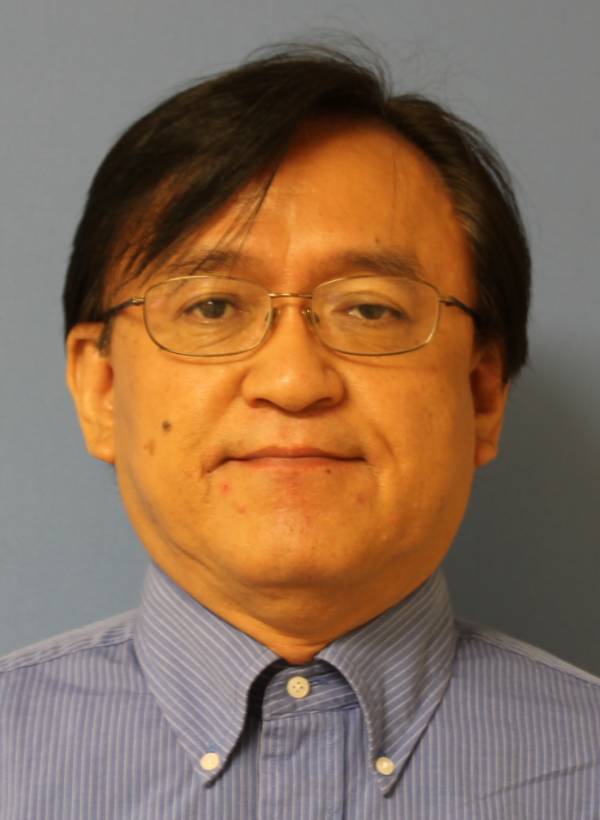
Our laboratory is interested in the signaling mechanisms by which advanced cancer cells acquire resistance to a) DNA damage, b) p53-dependent apoptosis, and c) substratum dissociation stress. One of our research interests is the dual roles of the c-MYC transcription factor in genomic instability and DNA damage resistance. We are also interested in the mechanisms of apoptosis induced by the p53 tumor suppressor in the presence of chromatin remodeling factors. The other area of research interest in our laboratory is the molecular mechanisms of normal epithelialization (or reverse EMT).
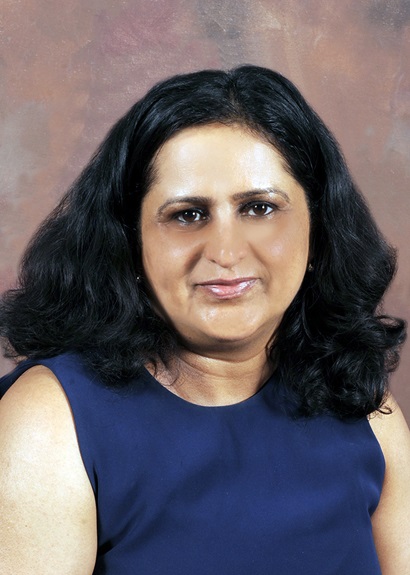
Our research program is primarily focused on delineating the molecular mechanisms driving progression, recurrence and metastasis of urological malignancies, with a major focus on prostate cancer. Specific areas of interest include (i) Elucidating novel non-coding RNAs/microRNAs-mediated signaling pathways instrumental in cancer progression, recurrence and metastasis. (ii) Identification and validation of novel exosome/extracellular vesicle (EV)-based markers for better diagnosis and prognosis. Long term goals include identifying better biomarkers for advanced disease and seeding development of novel therapeutic strategies against metastatic disease.
Institutional Faculty List | Lab web page
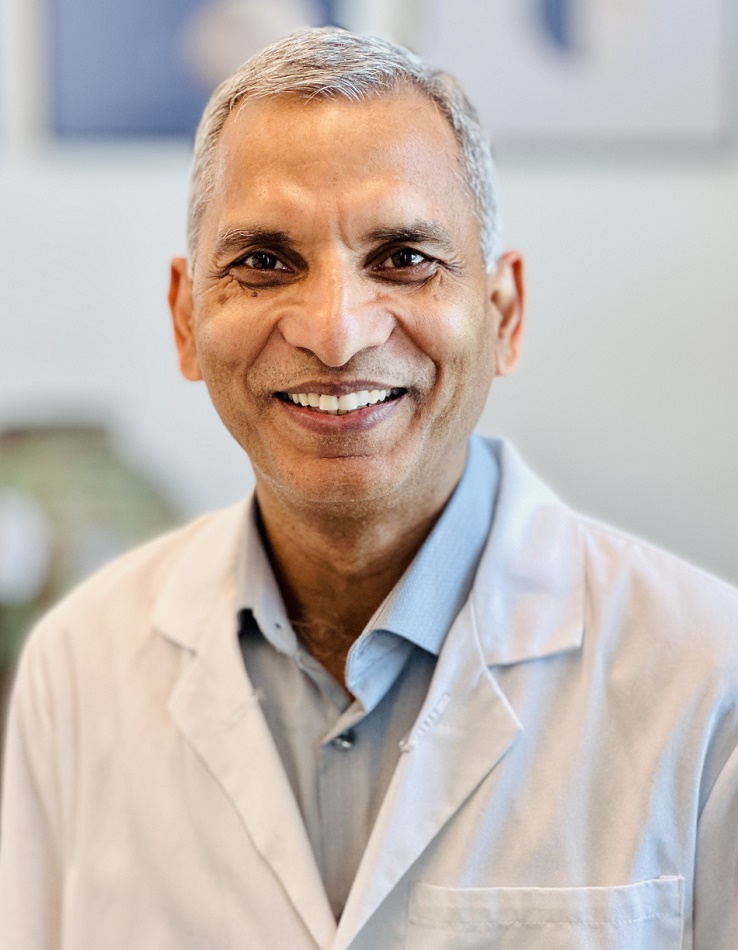
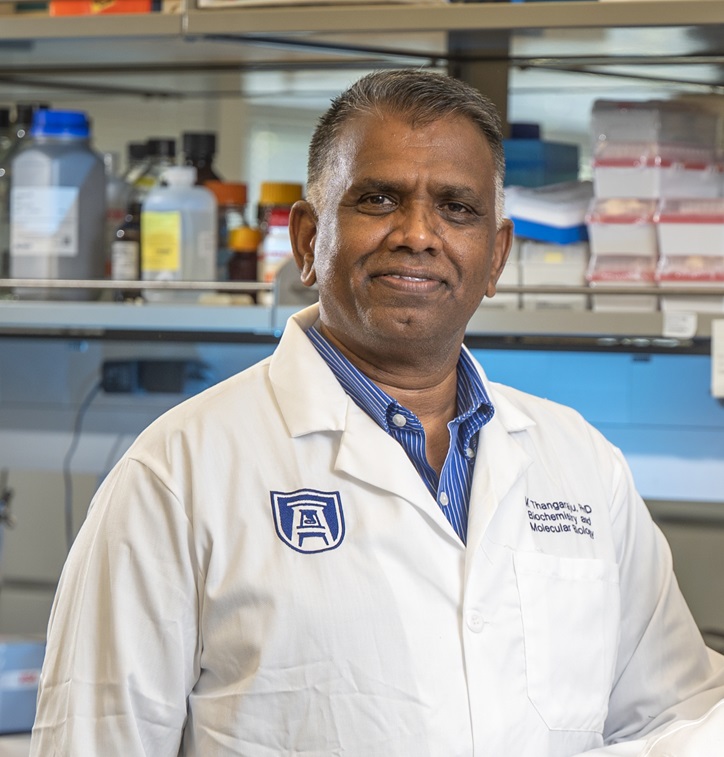
Role of plasma membrane transporters in the uptake of histone deacetylase (HDAC) inhibitors into tumor cells; Relevance of these transporters to tumor suppression in mammary gland via HDAC inhibition; Physiologic role of these transporters in apoptosis associated with mammary gland involution; Epigenetic mechanisms responsible for silencing of these transporters in breast cancer.
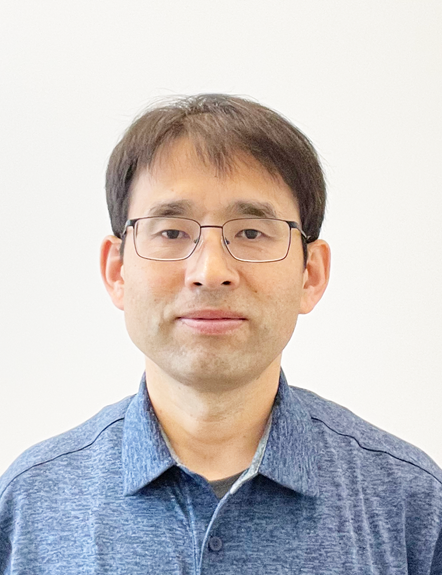
My research primarily focuses on uncovering the mechanisms by which nitric oxide (NO) exerts its physiological and pathological roles in renal protection, type 2 diabetes, atherosclerosis, sepsis, and stroke. Beyond cGMP-dependent signaling, the bioactivity of NO is largely mediated through S-nitrosylation—a redox reaction in which NO modifies a thiol group to form an S-nitrosothiol (–S–N=O). Protein S-nitrosylation is regulated by specific enzymes, including S-nitrosylases and denitrosylases. Our studies aim to identify these enzymes and elucidate how they modulate NO signaling or contribute to nitrosative stress, thereby influencing physiological and pathological outcomes across a range of disease models.
GCC Primary Appointment in BMB
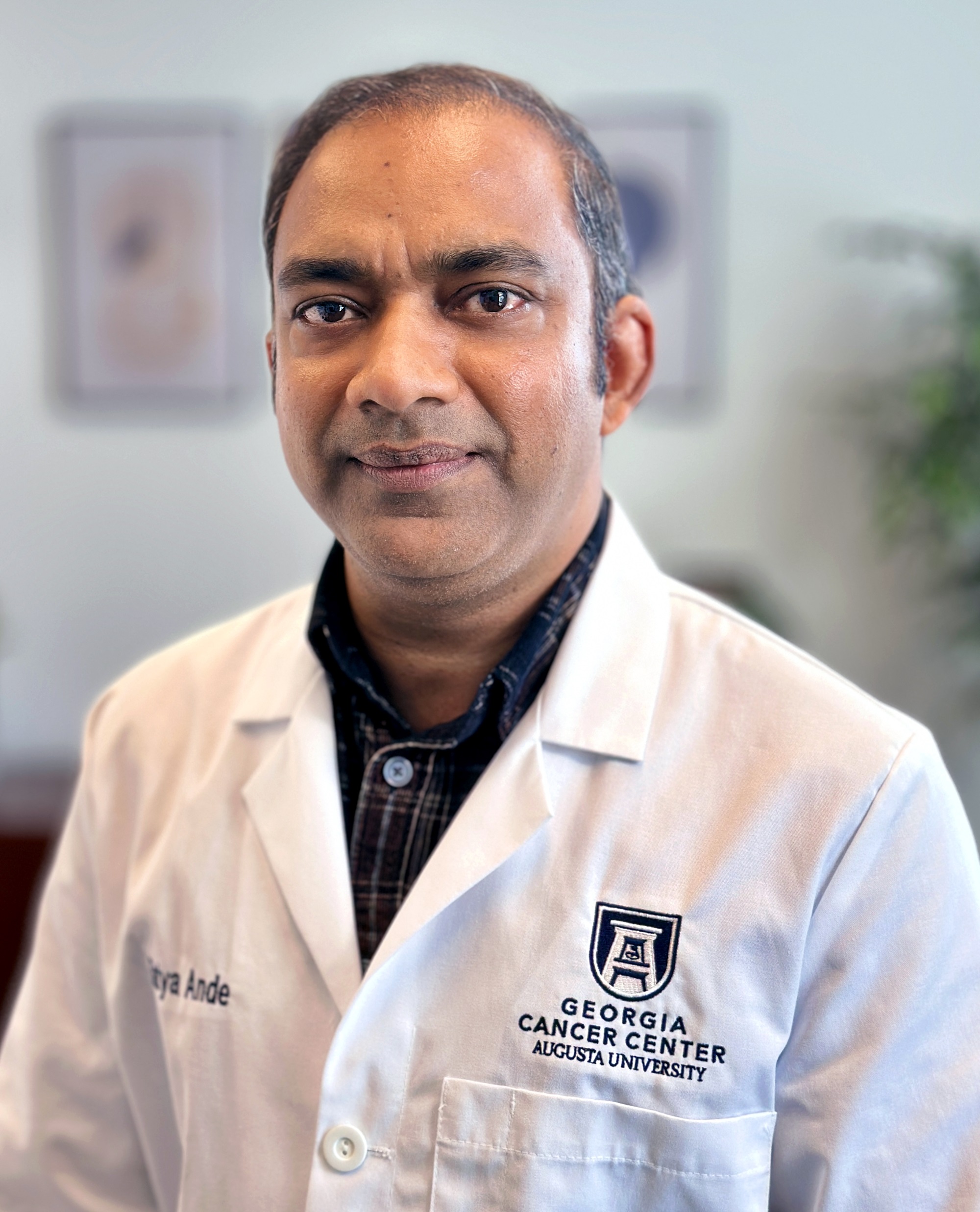
Satyanarayana Ande, PhD
- Associate Professor
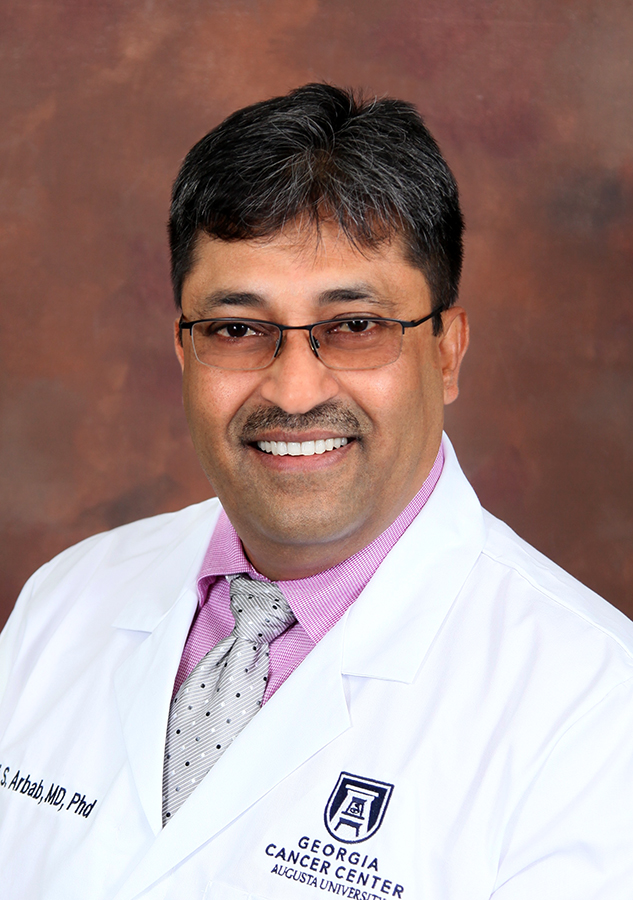
Ali Arbab, MD, PhD
- Professor
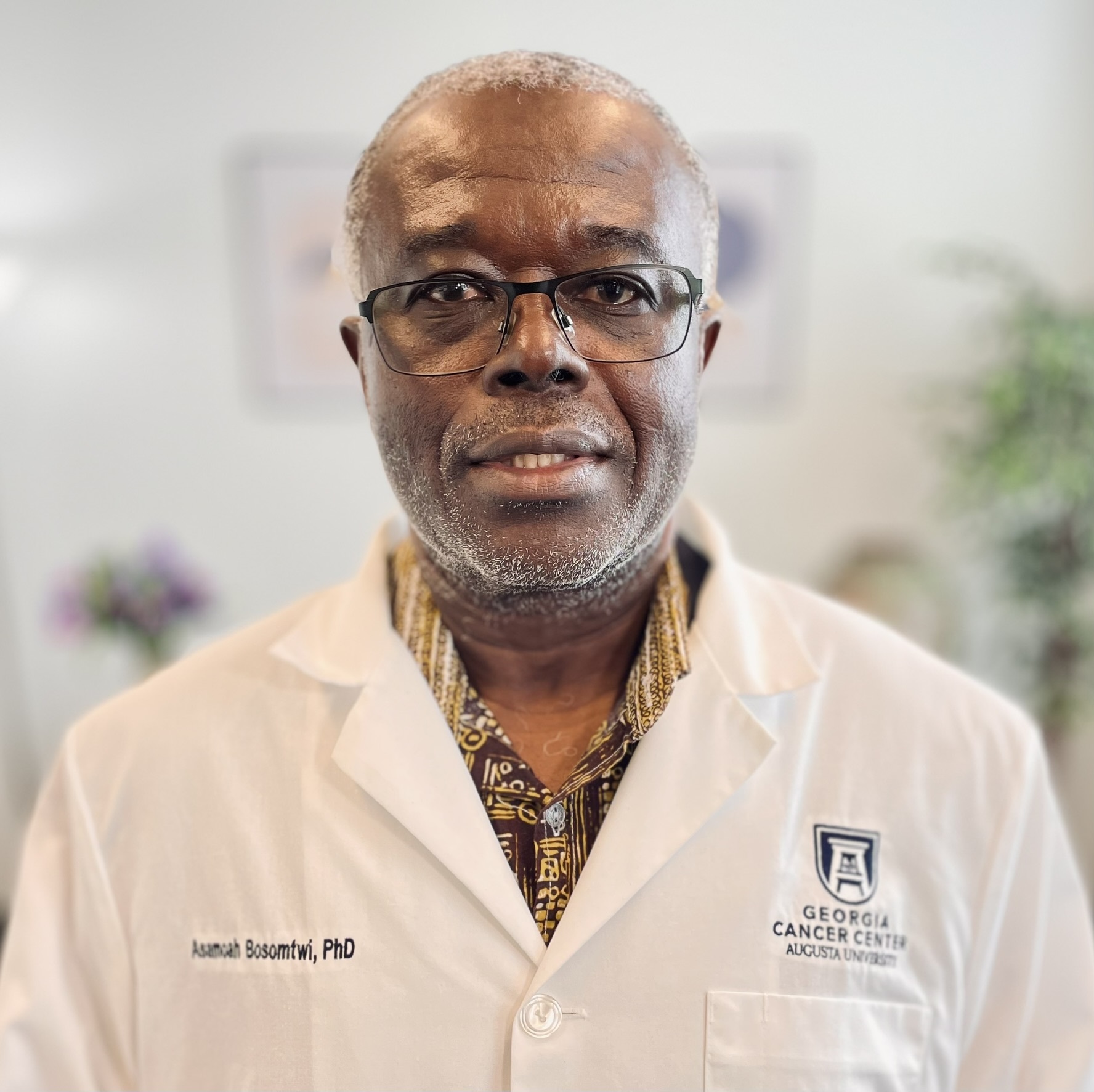
Asamoah Bosomtwi, PhD
- Research Scientist
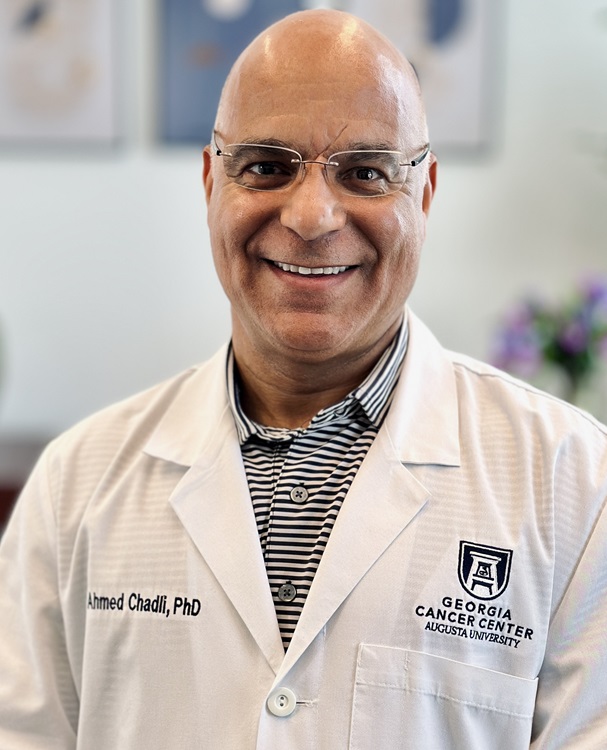
Ahmed Chadli, PhD
- Associate Professor
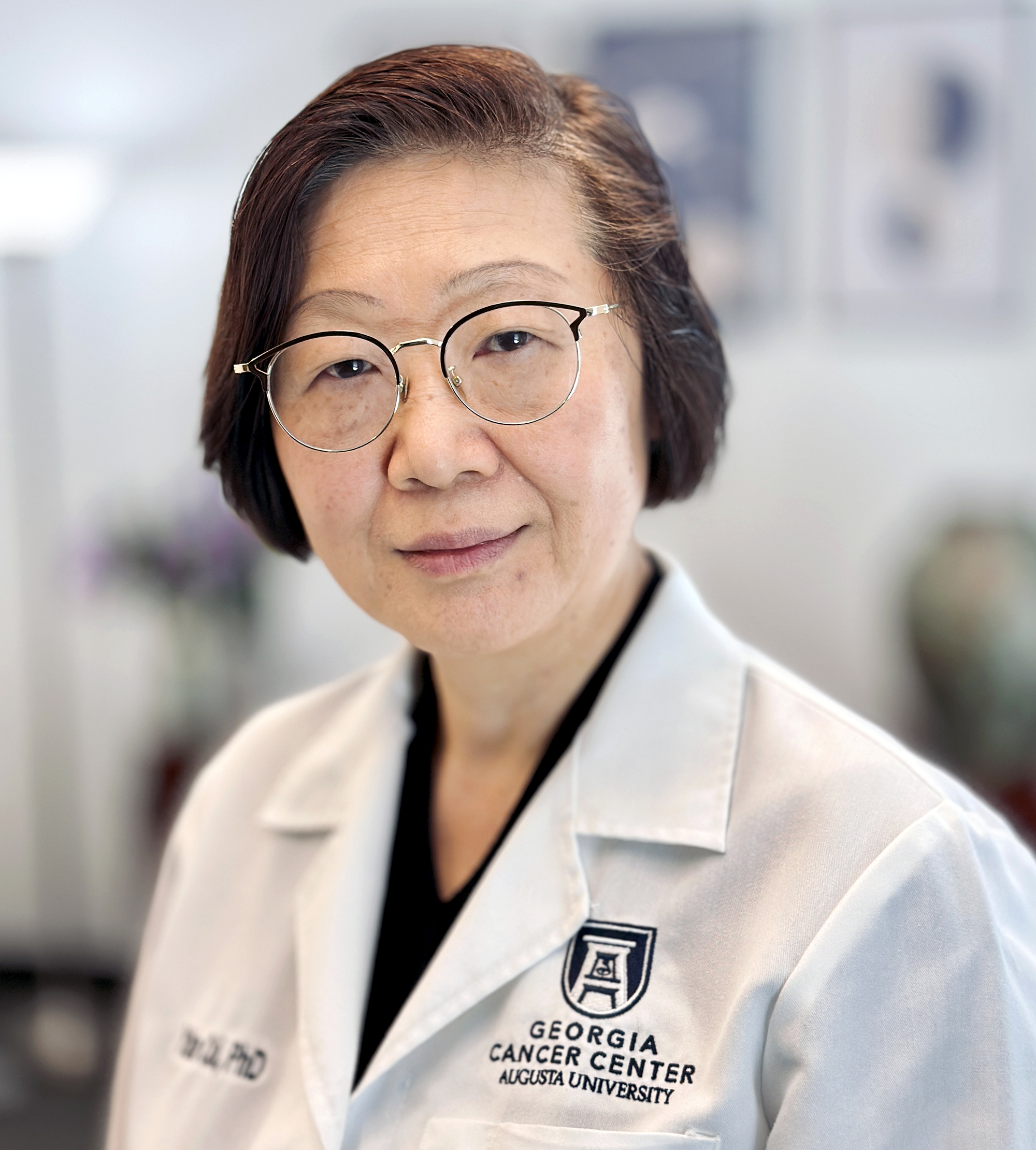
Yan Cui, PhD
- Professor
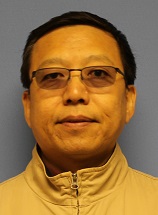
Gang Guo, MD
- Assistant Research Scientist
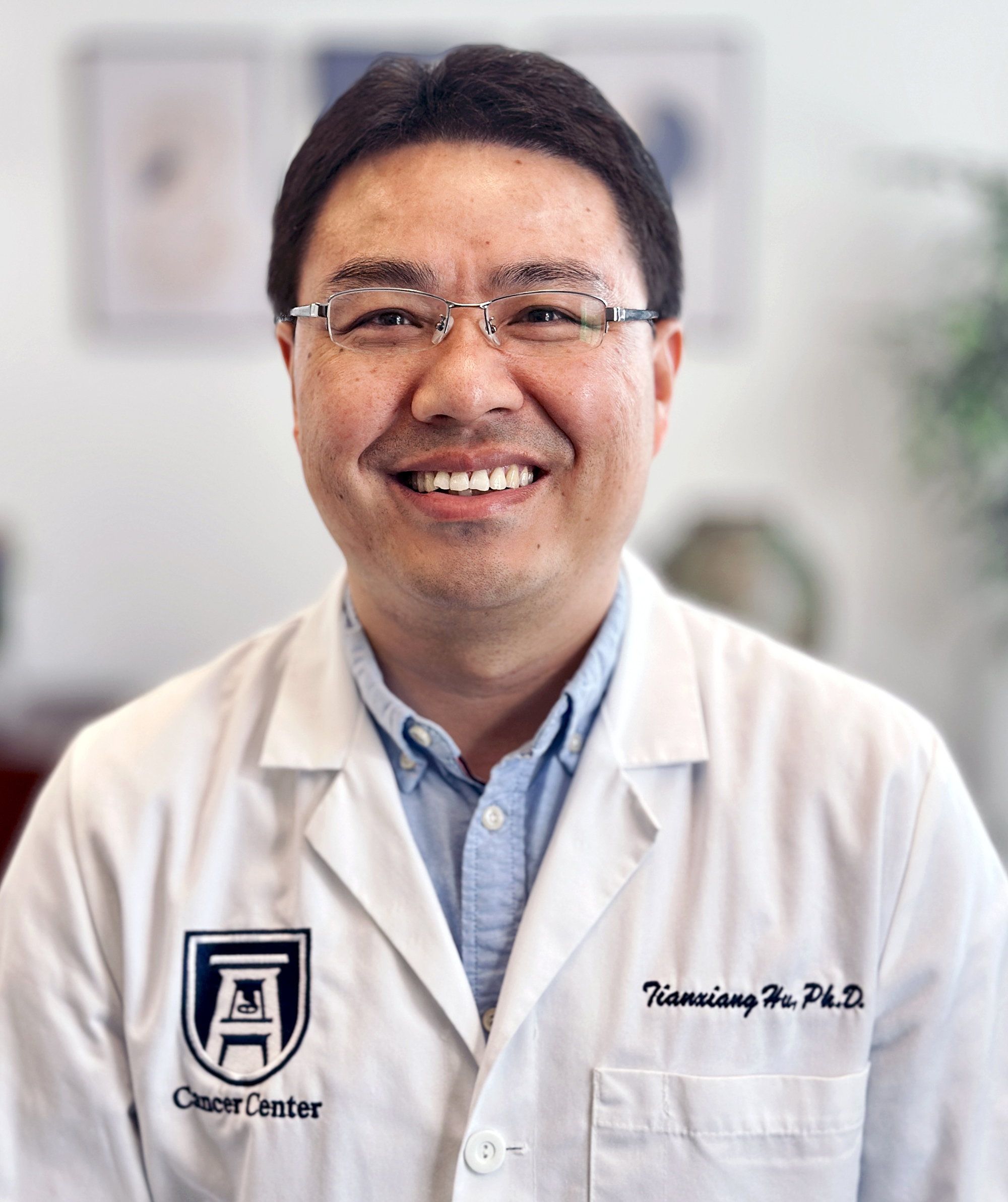
Tianxiang Hu, PhD
- Assistant Professor
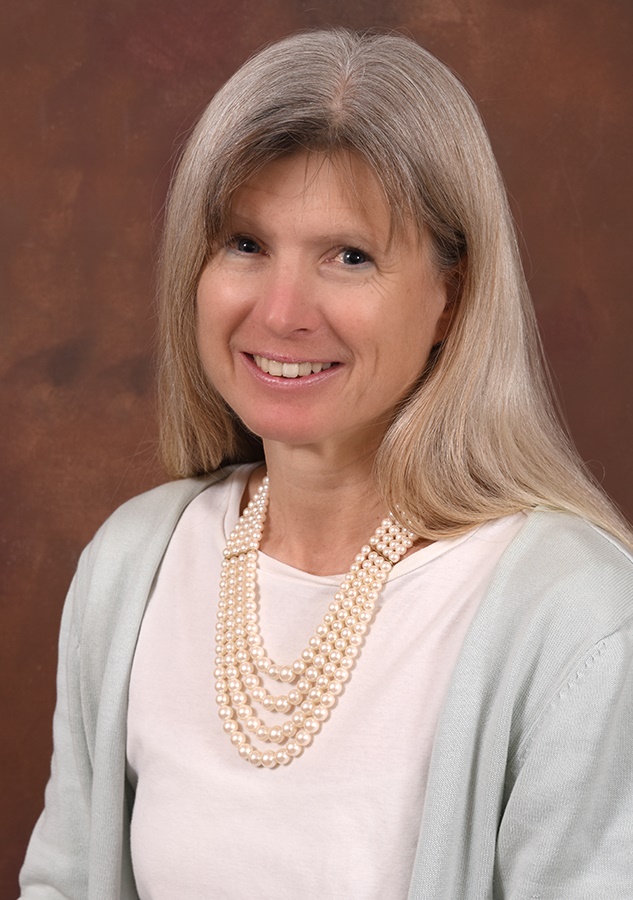
Lisa M. Middleton, PhD
- Associate Professor
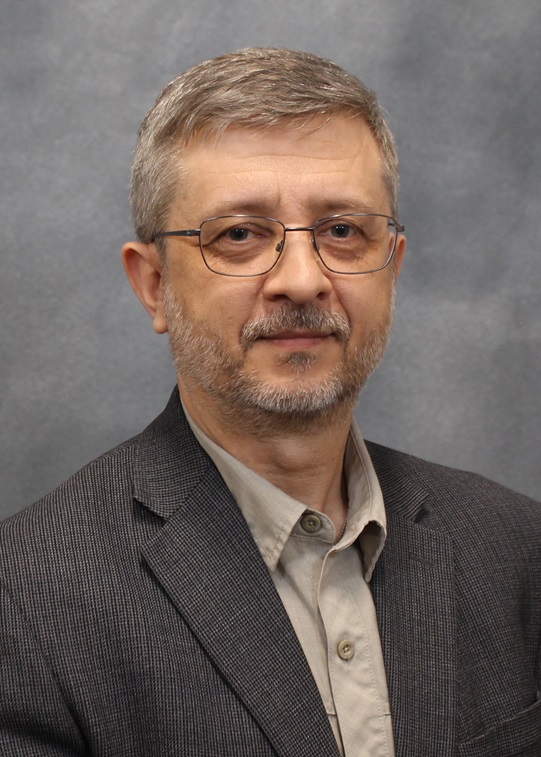
Rafal Pacholczyk, PhD
- Assistant Professor

Surendra Rajpurohit, PhD
- Research Scientist
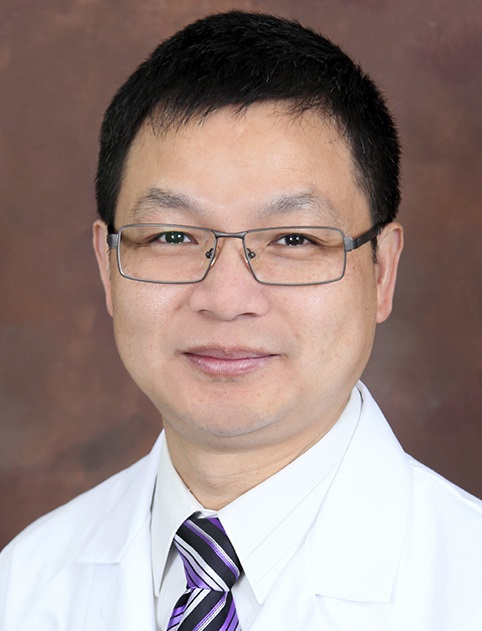
Chunghong Yan, PhD
- Professor
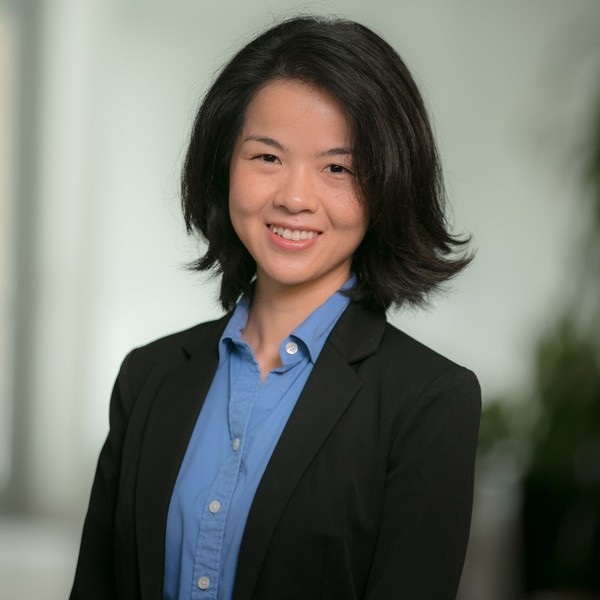
Yangfang "Peipei" Zhu, PhD
- Assistant Professor (IMMCG)
AU/UGA Medical Partnership
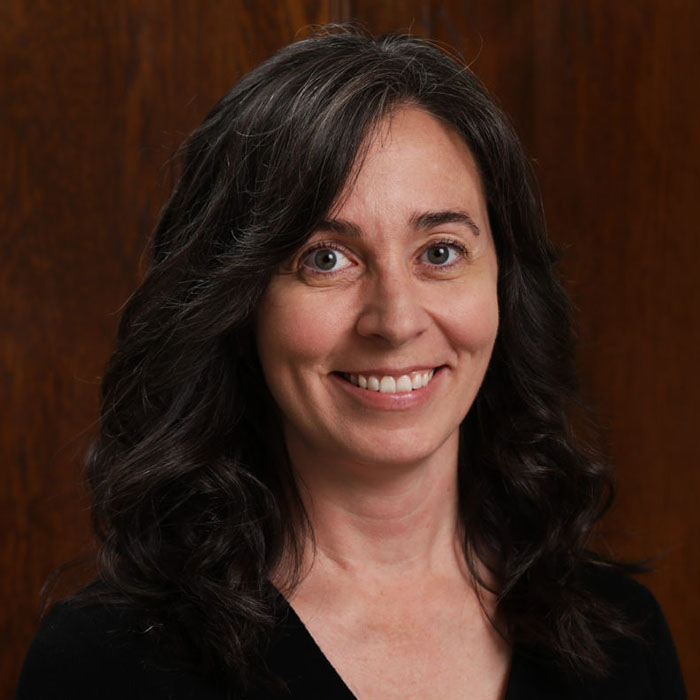
Amy Baldwin, PhD
- Professor (Primary)

Kearney Gunsalus, PhD
- Assistant Professor (Primary)
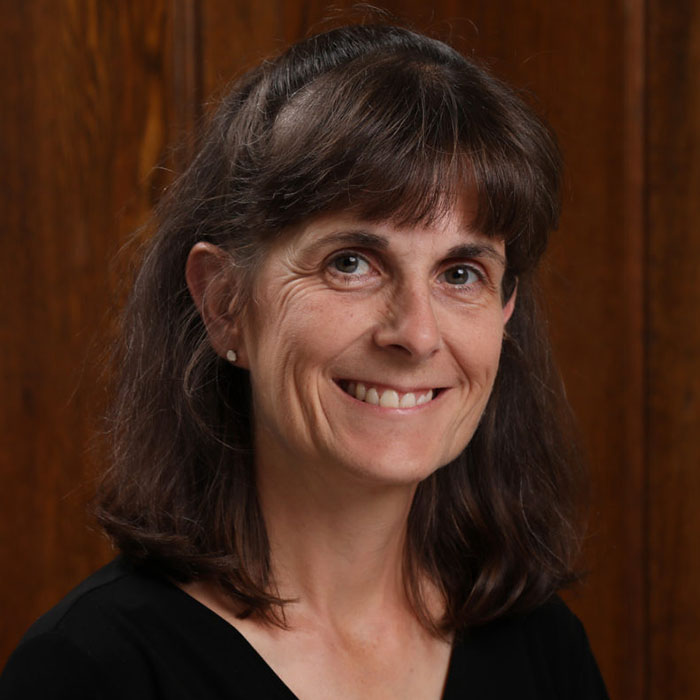
Amy Medlock, PhD
- Associate Professor (Adjunct)
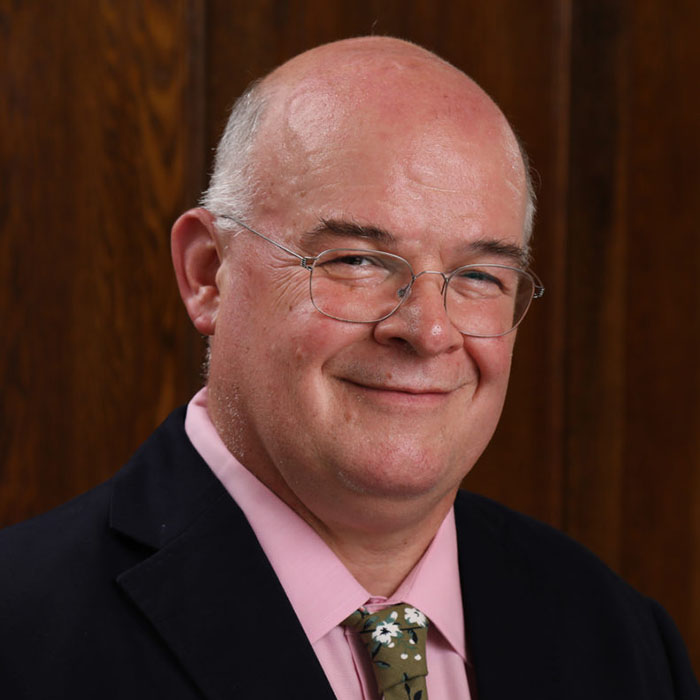
Andrew Morris, PhD
- Professor, Campus Assoc. Dean of Curriculum (Primary)
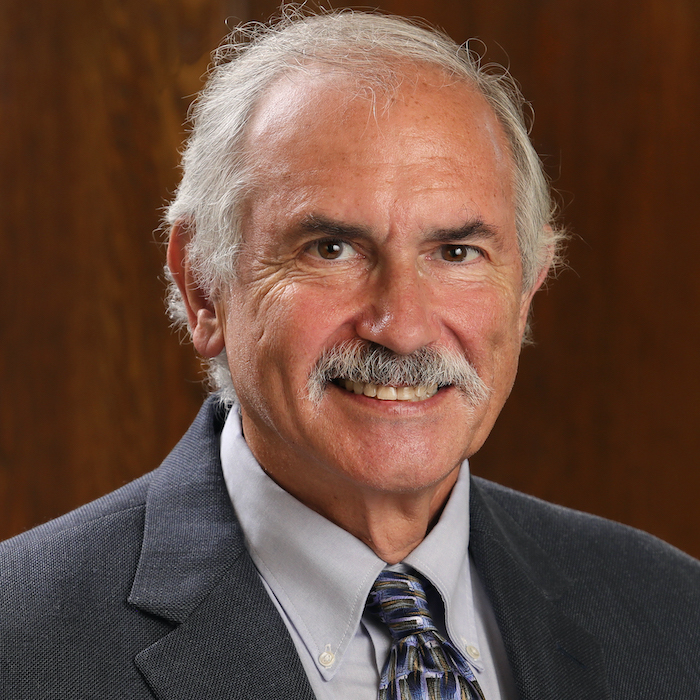
Kenneth S. Rosenthal, PhD
- Professor (Primary)
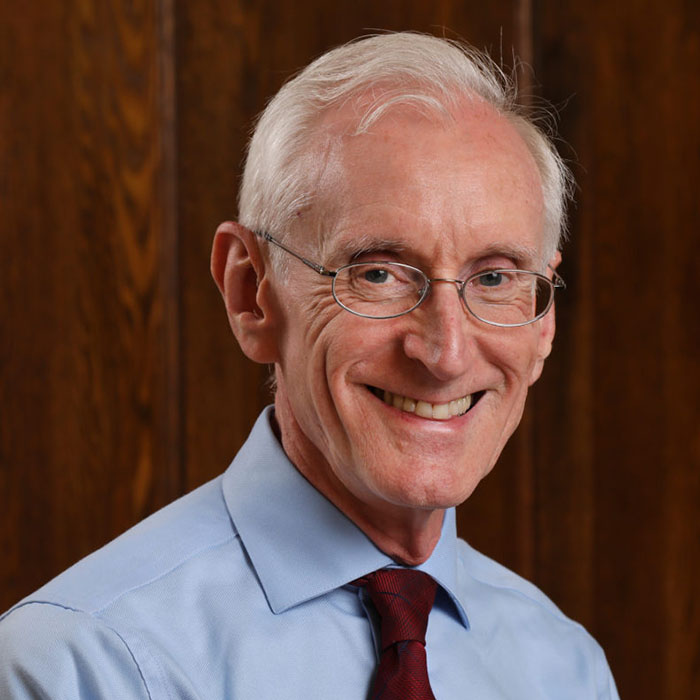
Clive A. Slaughter, PhD
- Professor (Primary)
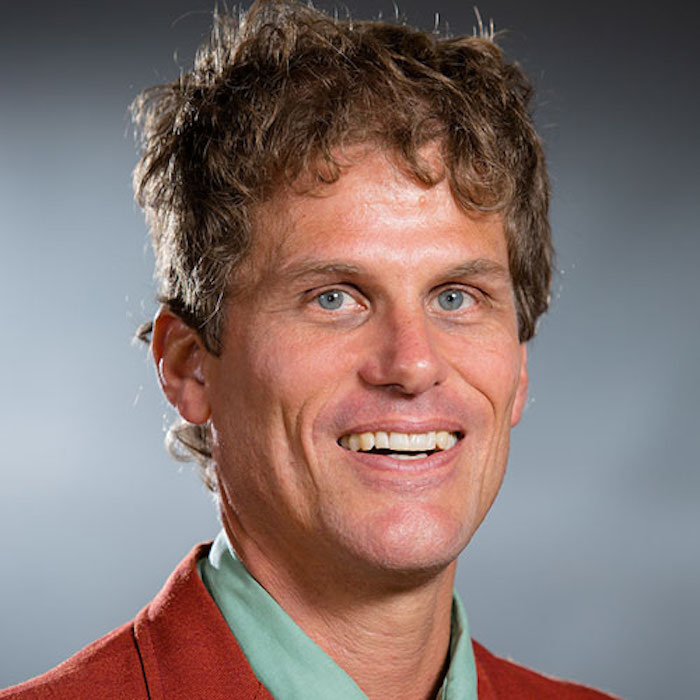
Andrew Sobering, PhD
- Professor (Primary)
Emeritus Faculty
Ata Abdel-Latif
Regent's Professor Emeritus; Ph D., IL Inst of Tech, 1963
Rashid Akhtar
Professor; PhD, London, 1975. Receptor-mediated phospholipid metabolism, generation
of second messenger molecules and their role in signal transduction in iris ciliary
body and corneal wound healing.
Institutional Faculty List
Vadivel Ganapathy
Professor; Chairman Emeritus; Ph.D. Biochemistry, University of Madras, India
Cancer biology; development of novel anticancer drugs; interaction between gut microbiome
and the host; structure and function of the retina in health and disease.
